Page Content
Home

Page Content 
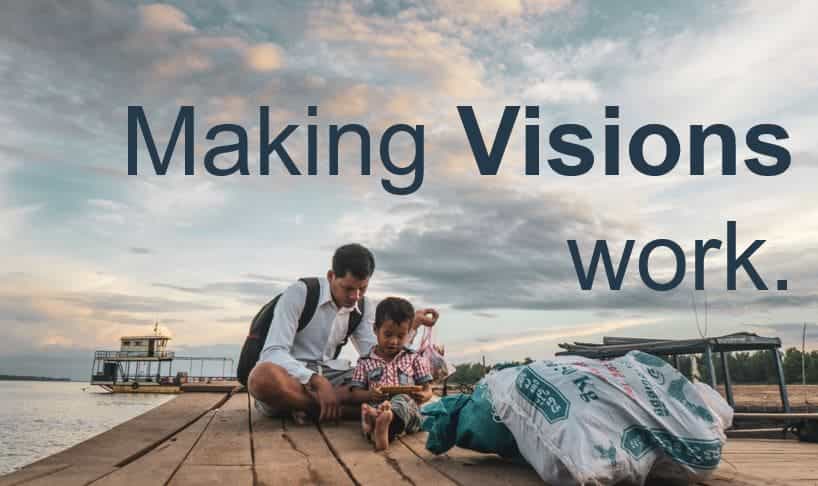



Welcome to the E+E shareweb of the Economy and Education Team, a platform for development practitioners working towards the creation of inclusive economic development programmes as well as quality education and lifelong learning opportunities for all. This common virtual space provides guidance on topics linked to economy and education and harnesses the expertise and lessons learnt of the E+E network. 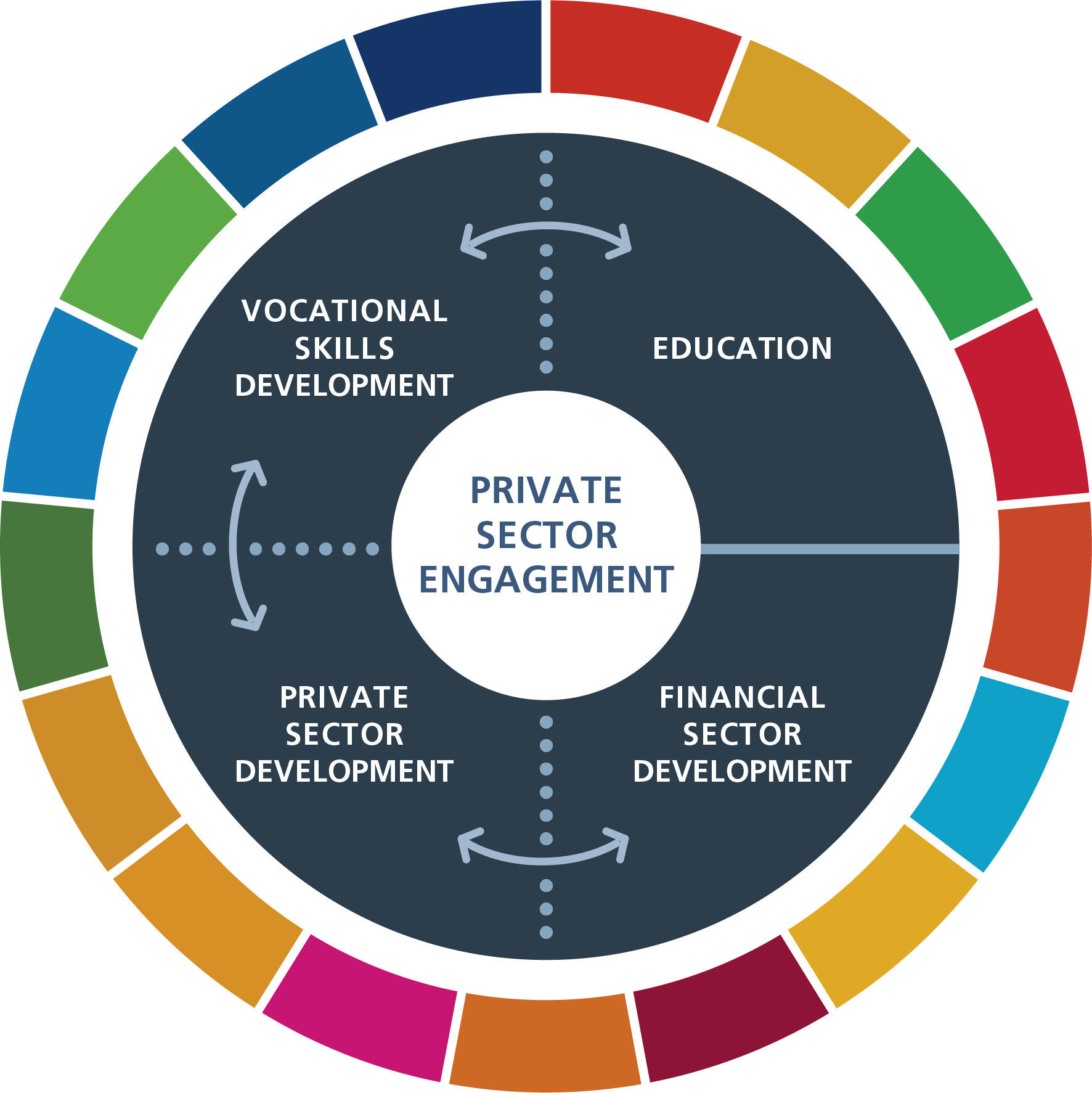 In line with the SDGs 2030, Switzerland is committed to an inclusive and sustainable economic growth that creates jobs, increases productivity and protects the environment. To achieve these ambitious goals, Switzerland promotes opportunities for basic education and vocational skill training and to increase engagements with the private sector. In line with the SDGs 2030, Switzerland is committed to an inclusive and sustainable economic growth that creates jobs, increases productivity and protects the environment. To achieve these ambitious goals, Switzerland promotes opportunities for basic education and vocational skill training and to increase engagements with the private sector.
The Economy and Education Team and its network is supporting this strategic orientation through four interlinked economic and educational thematic priorities on system and individual level: Education (EDU), Vocational Skills Development (VSD), Private Sector Development (PSD) and Financial Sector Development (FSD). In addition, the E+E Team seeks to promote the modality of Private Sector Engagement (PSE) across SDC’s entire portfolio to leverage the private sector’s expertise, innovation power and resources, and therefore increase the impact and sustainability of SDC’s programmes. It further advocates for responsible business practices by the private sector.

 
 

Featured Items
 31 Mar 2023
The guidelines aim to advise SDC staff and partners how to identify and make use of the interlinkages between BE and VSD to equip people with the skills they need to develop both as an individual and as a member of society and to access productive employment. The guide shows why a combination of basic education and vocational skills are needed for decent work4 and for inclusive, sustainable economic development, and how the SDC can operationalise BE–VSD interlinkages in the context of education, vocational education and training (VET), inclusive economic development, or programmes in other fields, e.g. migration, that aim to prepare people for labour market integration.
 15 Mar 2023
Since 2020, the Annex 2 exercise, carried out as part of the annual reports of SDC’s operational units, provides a picture of SDC’s Private Sector Engagement (PSE) portfolio. As a modality, PSEs are implemented across all of SDC’s priority topics and they are diverse in terms of objectives and private sector partners. By comparing data from SAP with information entered by operational units, we get an understanding of the universe of PSE projects SDC is engaged in. Last year, the Annex 2 database allowed SDC, for the first time, to report to the OECD on mobilizing private sector funding. You can find the overview here.
 14 Mar 2023

On February 15 and 16 over 1,000 representatives of the public, civic and private sector gathered virtually and physically in Geneva to discuss and co-create solutions to address the urgent financing gap to achieve global access to basic education for children and youth and therefore achieve SDG 4.
The urgency of for leveraging funding that goes beyond government sources became obvious, as the vast majority in a live poll highlighted "funding" as the most needed element to achieve SDG 4. At the same time, another poll showed that only 6% of the participants actually came from the private sector, which holds the strongest potential to provide financing for education.
Therefore, one of the four working sessions of the Forum was dedicated to present and discuss approaches and initiatives to use innovative finance instruments to mobilise funding for SDG 4. The session highlighted some important aspeects of innovative finance and presented concrete solutions, such as the Impact-Linked Fund for Education or a sustainable mutual fund initiated by the Zürcher Kantonalbank (ZKB) that would make fixed donations to Education Cannot Wait Fund from the UN.
The discussions showed, that the financial sector can play an important role in closing the financing gap for SDG 4: On the one hand, it is part of the core expertise of banks to provide investment solutions through their investment know-how and to generate returns that can be used to finance education. On the other hand, through their access to customers, they can make these investment vehicles available to investors interested in philanthropy.
 14 Mar 2023

The BUILD Fund is a unique investment fund in support of small and medium-sized enterprises (SMEs) in least developed and lower middle income countries (LDCs and LMICs). Combining public and private investments, it will catalyse positive impact on the ground and contribute to achieve the SDGs.
Launched in 2020 and managed by Swiss-based Bamboo Capital Partners (BCP), the BUILD Fund provides growth capital to businesses identified, supported and nurtured by UNCDF. The overall objective of the BUILD Fund is to contribute to poverty alleviation, reduce gender inequalities and promote inclusive and sustainable economic growth. The BUILD Fund aims to invest in four sectors, namely 1) food security, nutrition, agribusiness; 2) financial inclusion and innovation; 3) green economy and renewable energy; 4) local infrastructure, and has a cross-cutting focus on youth and women’s economic empowerment. A key element of this is the economic advancement of women, particularly by supporting businesses owned or run by women. The BUILD Fund thus contributes to the achievement of various goals of the Swiss International Cooperation Strategy 2021–24.
Promoting inclusive and sustainable economic growth
In Zambia and Zimbabwe, as in many developing countries, SMEs face difficulties to meet their financial needs, despite their importance to the achievement of the SDGs and their contribution to economic growth. This constrains their productivity and survival. Blended finance should in principle address this underfunding, but although it is on the rise, only 6% of private finance mobilised by official development finance between 2012 and 2017 went to LDCs.
Switzerland will support the BUILD Fund with two separate but complementary investments: First, a direct investment of 5 million Swiss francs into the BUILD fund that can be deployed globally in those countries and sectors with the highest financing gap to achieve the 2030 Agenda. Second, an indirect investment of 9 million Swiss francs by way of a contribution to UNCDF, which will earmark the contribution to investments in Zambia and Zimbabwe. Finally, the SDC provides a 1 million Swiss francs to the BUILDER TA facility, which is closely involved in pipeline generation, portfolio building, and business advisory support to businesses.
Read here the full press release.
 23 Feb 2023
The factsheet provides an overview of how Basic Education is addressed at SDC. It discusses the main challenges faced, the strategic priorities pursued, and the partners supported at the international, regional, national and local levels. In addition, it presents the expenditure by education sector and by area within SDC. A map presents the geographic spread of SDC's Basic Education projects and is complemented by project examples that illustrate SDC's engagement in Basic Education. Link to the factsheet  French Version French Version  German Version German Version
 13 Feb 2023
This updated VSD Factsheet provides an overview of the opportunities and challenges in vocational education and training, SDC's approaches to promote vocational skills development in its projects, the partners , as well as project examples and facts and figures. Link to the factsheet
 24 Jan 2023

SDC's Quality Assurance and Internal Digitalisation Specialist Service, together with NADEL (ETH Zurich) and other partners, updated the e-learning tool PCMi (Project Cycle Management interactive). PCMi consists of a series of modules introducing development professionals into the thinking of results-oriented project cycle management (PCM). Go to e-learning platform
 09 Jan 2023

International Cooperation Forum Switzerland «Education4Future» - 15 February 2023, International Conference Centre Geneva (CICG), Switzerland - The event is free of charge, CO2-neutral and hybrid. Participation is open to all interested - On 16 February 2023, the «Youth4Solutions» will take place. Register Now: IC Forum Named 'Education for Future', the International Cooperation Forum Switzerland (IC Forum) on 15 and 16 February 2023 will focus on education. As part of «Youth for Solutions», the focus of the second day (16 February) will be on young people and their ideas and approaches. Good basic education and training are crucial for sustainable development. And yet education systems around the world are facing major challenges. Even before the pandemic, six out of ten children were not reaching basic levels of proficiency in reading and maths. COVID-19 exacerbated this situation. Scores of schools were closed, children could no longer study, and young people had to abandon their training programmes. Switzerland has been championing the right to education for many years. Both basic education and vocational skills development are vital cornerstones of Switzerland's international cooperation. The IC Forum brings together diverse voices and perspectives. Representatives of politics, research, the younger generation, the private and financial sectors, NGOs and civil society work together to develop solutions to global challenges. The hybrid event format with working sessions combining practice and theory as well as the interactive platform allow all interested parties to actively participate in the discussions.
 04 Jan 2023
![]()
![]()

Dear colleagues and E+E aficionados
We live in a world of overlapping global crises. After a tough 2020 and 2021, in which we were confronted with a global pandemic and the increasingly palpable impacts of climate change, we were faced with a new shock at the beginning of 2022. Just as a durable recovery from the global economic collapse following the COVID-19 pandemic appeared to be in our grasp, Russia’s invasion of Ukraine has brought the consequences of conflict and rising living costs to our very doorsteps. More than a decade of economic and social progress was reversed in some regions. Beyond the immediate humanitarian impacts, the war will severely set back any global recovery, slowing growth and increase inflation even further. Many of our beneficiaries will struggle to retain their hard-won entry to the middle classes and risk falling back below the poverty line. Today, 222 million crisis affected children and young people worldwide see their access to education denied or disrupted.
Even more reason to focus on the inspiring, the positive and the possibilities of the new year 2023 ahead! The positive – Since September 2022, the Inclusive Economic Development and the Education teams have joined forces to become the new thematic section Economy and Education (E+E). We have made our advisory services even more accessible and beneficial for all project managers in the field and at HQ. The inspiring – You as a member of the E+E network. The E+E Team has demonstrated great respect and appreciation for the project managers’ professionalism and dedication all over the world. You made the difference thanks to the positive way in which you and your team have worked through the difficult humanitarian and development challenges and embraced emerging opportunities. The possibilities - The E+E Team stands ready to support you in your programme implementation and to help you attain the best possible project results and the highest level of beneficiary satisfaction in 2023. We wish you all the very best for this festive season and the new year ahead. We are looking forward to a great year of working together - Happy 2023 to you and your loved ones!
Diepak Elmer & Patrick Egli and the entire E+E Team ![]()
 05 Dec 2022
The Swiss Guidance on Business and Human Rights is intended to help the Swiss Representations in the field to engage in a constructive dialogue with Swiss companies in order to raise awareness of human rights issues and provide specific advice in relation to the local context. The guidance has been sent to embassies and cooperation offices and is available online and as a hard copy brochure. It can be ordered (in E, F, D versions) from: sts.afm.mrd@eda.admin.ch Link to the document
-
30 Apr 2023
 SDC - Working Aid - Interlinking Basic Education and VSD
SDC - Working Aid - Interlinking Basic Education and VSD
SDC - Working Aid - Interlinking Basic Education and VSD
The guidelines aim to advise SDC staff and partners how to identify and make use of the interlinkages between BE and VSD to equip people with the skills they need to develop both as an individual and as a member of society and to access productive employment. The guide shows why a combination of basic education and vocational skills are needed for decent work4 and for inclusive, sustainable economic development, and how the SDC can operationalise BE–VSD interlinkages in the context of education, vocational education and training (VET), inclusive economic development, or programmes in other fields, e.g. migration, that aim to prepare people for labour market integration.
-
31 Mar 2023
SDC - Working Aid - Interlinking Basic Education and VSD
SDC - Working Aid - Interlinking Basic Education and VSD
The guidelines aim to advise SDC staff and partners how to identify and make use of the interlinkages between BE and VSD to equip people with the skills they need to develop both as an individual and as a member of society and to access productive employment. The guide shows why a combination of basic education and vocational skills are needed for decent work4 and for inclusive, sustainable economic development, and how the SDC can operationalise BE–VSD interlinkages in the context of education, vocational education and training (VET), inclusive economic development, or programmes in other fields, e.g. migration, that aim to prepare people for labour market integration.
-
15 Mar 2023
-
15 Mar 2023
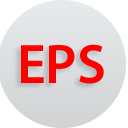 Education for Sustainable Development in Mongolia project
Education for Sustainable Development in Mongolia project
Education for Sustainable Development in Mongolia project
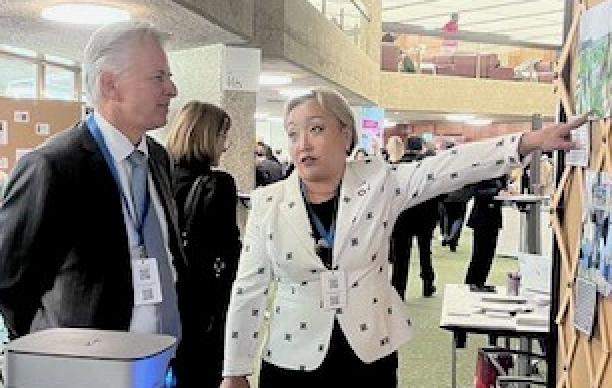
The “Education for Future”, the International Cooperation Forum Switzerland (IC Forum) 2023 was focused on education. Good basic education and training are crucial for sustainable development, yet education systems around the world are facing major challenges. Switzerland has been championing the right to education for many years. Both basic education and vocational skills development are vital cornerstones of Switzerland's international cooperation. At the Forum, representatives of 120 countries participated physically and online. The Mongolian representatives of education and environment sectors have attended the IC Forum 2023 in-person. They also presented the results of the Education of Sustainable Development (ESD-II) project in Mongolia. SDC is supporting the ESD in Mongolia since 2014. While the first phase succeeded to mainstream the ESD in the secondary education curricula, the second and final phase of the project focused on the actual transformative actions for sustainable development in the schools and communities. The local schools are empowered to drive the transformation by promoting sustainability actions in both isolated rural nomadic communities and the capital city. The schools were able to raise significant funds for their actions due to improved collaboration between national and subnational stakeholders, private and public players. The actual local commitment was 70% greater than the planned amounts. Bringing together representatives from various sectors to discuss and implement sustainable development actions was a critical success factor. Another enabling factor was the full delegation of implementation responsibility to the national government and non-governmental partners. The actions had a significant impact on local social, environmental, and cultural aspects, benefiting 29‘500 students, their families, and communities. The Mongolian delegation's participation in the IC Forum was part of a larger program in which they met representatives from the Swiss Conference of Cantonal Ministers of Education, Education 21, Movetia, Silviva, CDE of Bern University, and UNESCO IBE. Mongolia is at a crossroads in terms of defining a new curriculum concept and revising its educational laws. In order to provide inclusive and quality education for all, it is critical to incorporate sustainable development and ESD into the vision and concept of the education system while carefully considering the national and cultural values. As requested by UNESCO IBE, Mongolia will share its experiences of the transformation to the global community. 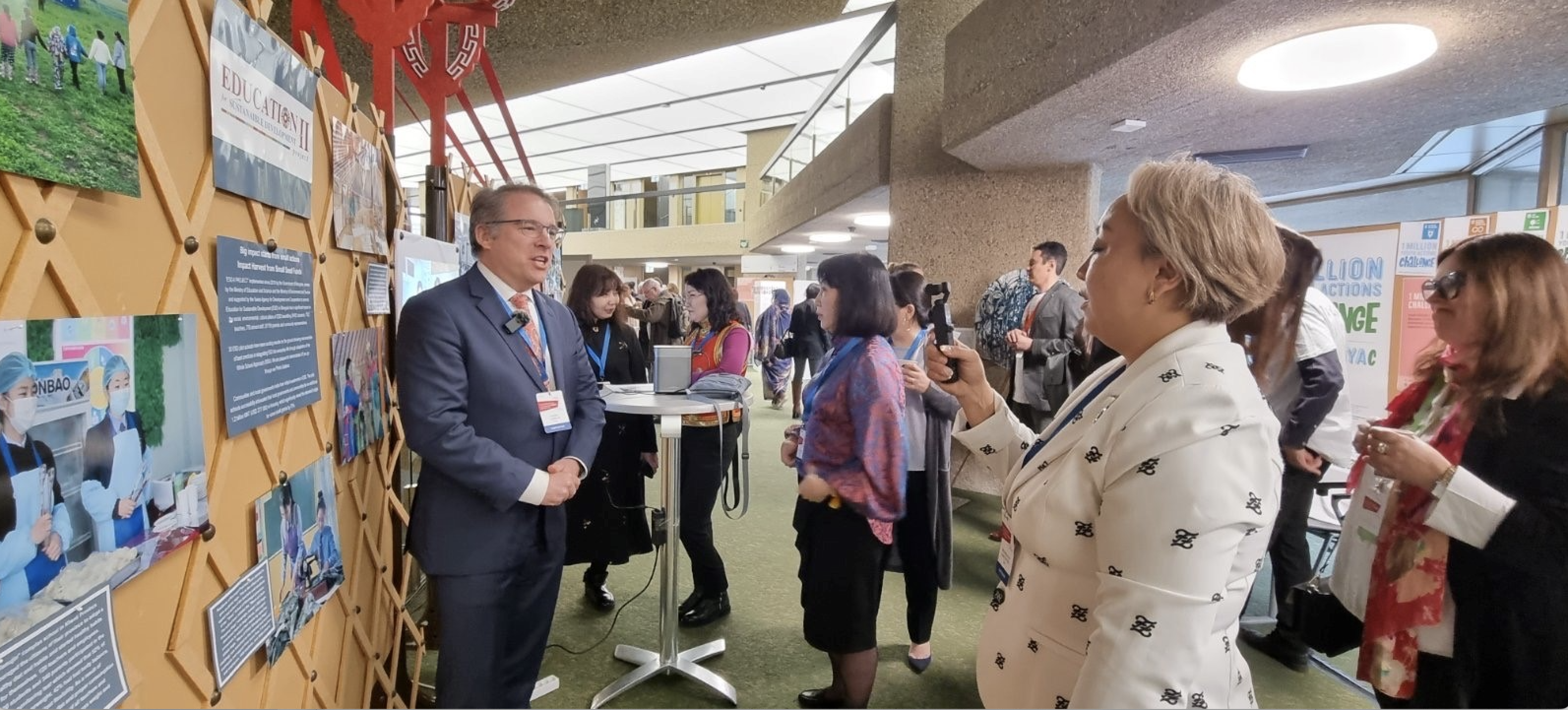
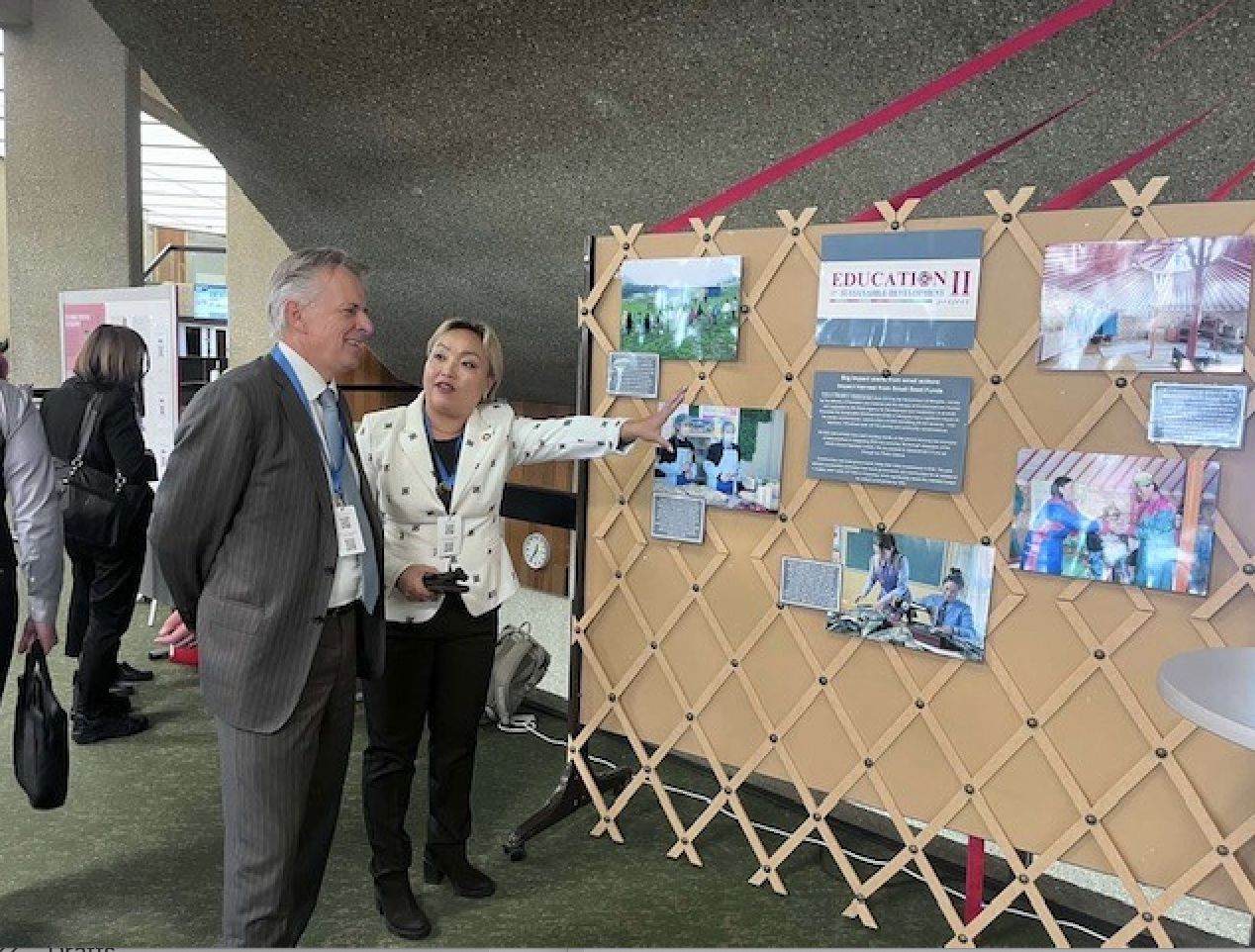
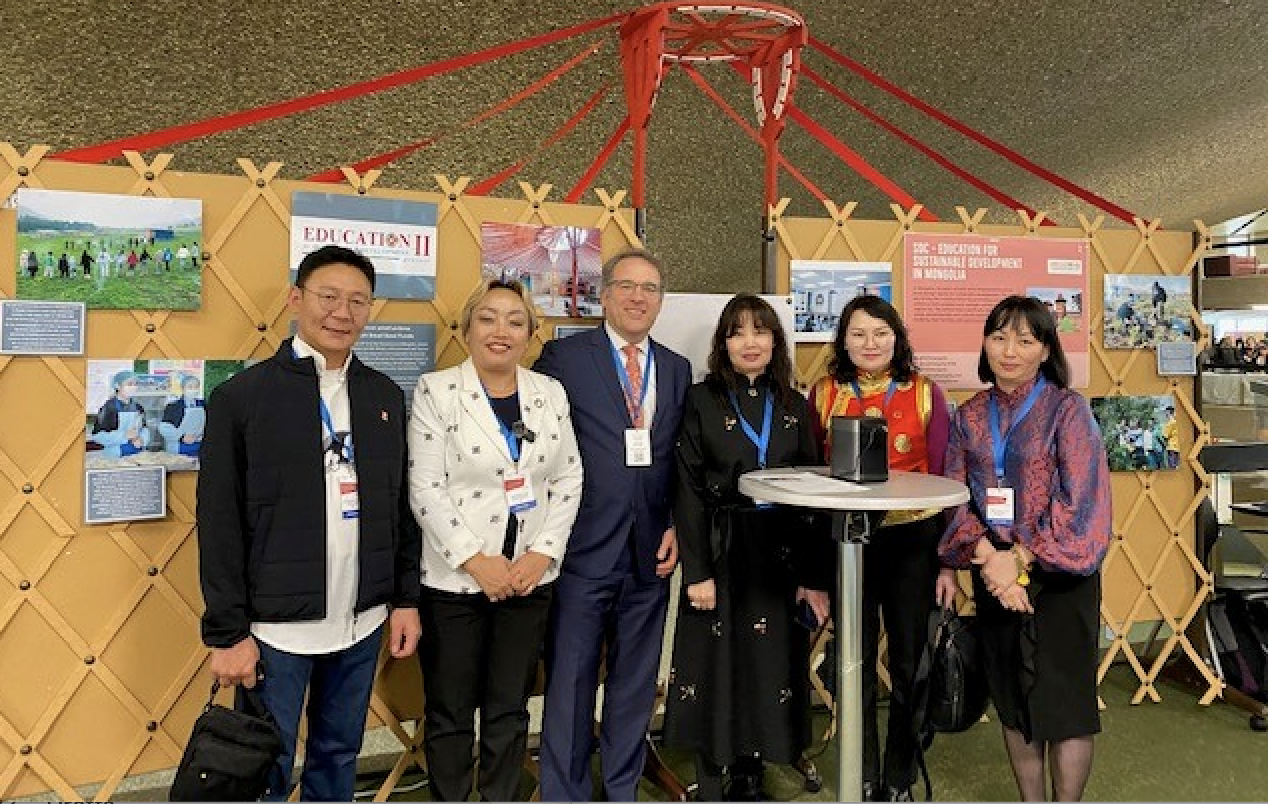
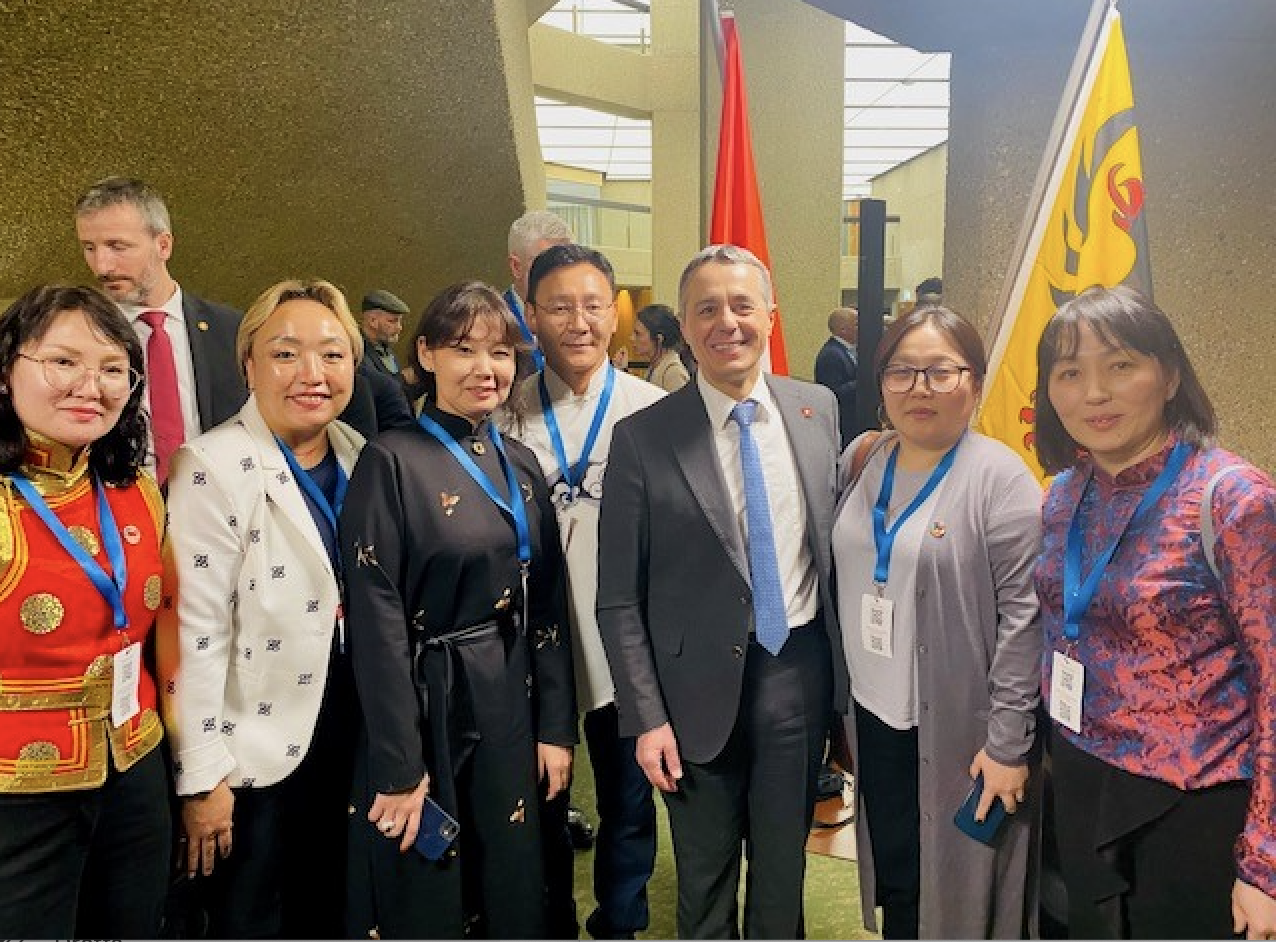
-
15 Mar 2023
Overview PSE@SDC 2022
Overview PSE@SDC 2022
Since 2020, the Annex 2 exercise, carried out as part of the annual reports of SDC’s operational units, provides a picture of SDC’s Private Sector Engagement (PSE) portfolio. As a modality, PSEs are implemented across all of SDC’s priority topics and they are diverse in terms of objectives and private sector partners. By comparing data from SAP with information entered by operational units, we get an understanding of the universe of PSE projects SDC is engaged in. Last year, the Annex 2 database allowed SDC, for the first time, to report to the OECD on mobilizing private sector funding. You can find the overview here.
-
15 Mar 2023
-
15 Mar 2023
Education for Sustainable Development in Mongolia project
Education for Sustainable Development in Mongolia project
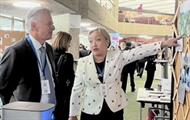
The “Education for Future”, the International Cooperation Forum Switzerland (IC Forum) 2023 was focused on education. Good basic education and training are crucial for sustainable development, yet education systems around the world are facing major challenges. Switzerland has been championing the right to education for many years. Both basic education and vocational skills development are vital cornerstones of Switzerland's international cooperation. At the Forum, representatives of 120 countries participated physically and online. The Mongolian representatives of education and environment sectors have attended the IC Forum 2023 in-person. They also presented the results of the Education of Sustainable Development (ESD-II) project in Mongolia. SDC is supporting the ESD in Mongolia since 2014. While the first phase succeeded to mainstream the ESD in the secondary education curricula, the second and final phase of the project focused on the actual transformative actions for sustainable development in the schools and communities. The local schools are empowered to drive the transformation by promoting sustainability actions in both isolated rural nomadic communities and the capital city. The schools were able to raise significant funds for their actions due to improved collaboration between national and subnational stakeholders, private and public players. The actual local commitment was 70% greater than the planned amounts. Bringing together representatives from various sectors to discuss and implement sustainable development actions was a critical success factor. Another enabling factor was the full delegation of implementation responsibility to the national government and non-governmental partners. The actions had a significant impact on local social, environmental, and cultural aspects, benefiting 29‘500 students, their families, and communities. The Mongolian delegation's participation in the IC Forum was part of a larger program in which they met representatives from the Swiss Conference of Cantonal Ministers of Education, Education 21, Movetia, Silviva, CDE of Bern University, and UNESCO IBE. Mongolia is at a crossroads in terms of defining a new curriculum concept and revising its educational laws. In order to provide inclusive and quality education for all, it is critical to incorporate sustainable development and ESD into the vision and concept of the education system while carefully considering the national and cultural values. As requested by UNESCO IBE, Mongolia will share its experiences of the transformation to the global community. 



Show All
-
13 Jun 2023
-
03 Jul 2023
Hotel Grenzfall, Berlin, Germany
Training - Mesopartner Summer Academy 2023

Training - Mesopartner Summer Academy 2023

The Summer Academy is a five-day residential international event on economic development. - At the Summer Academy, participants are introduced to Mesopartner’s approach to Local Economic Development (LED), which brings together experiences and instruments from Local and Regional Economic Development (LRED), Bottom-Up Industrial Policy, Innovation Systems, Complexity Thinking and Market System Development.
- Due to Mesopartner's diverse work globally, participants will benefit from different perspectives from the trainers and the international participants offer unique exposure to multi-cultural perspectives and experience in development economics.
- The Mesopartner Summer Academy will deepen your understanding of systemic economic change processes and enable you to better guide your organisation or project to shape that process.
- Learn how to offer the knowledge that local actors need to address the challenge of innovation and change in a systemic and complexity-sensitive way.
- Learn how to use innovative tools based on local and regional economic development, cluster and value chain promotion, market systems development, strengthening of local innovation systems and related topics.
- Learn how to facilitate development processes and give policy advice.
Learn more and also read what others say about the Summer Academy.
-
06 Sep 2023
Zurich, Switzerland
Training - Impact Investment & Blended Finance for Development Agencies & Foundations

Training - Impact Investment & Blended Finance for Development Agencies & Foundations
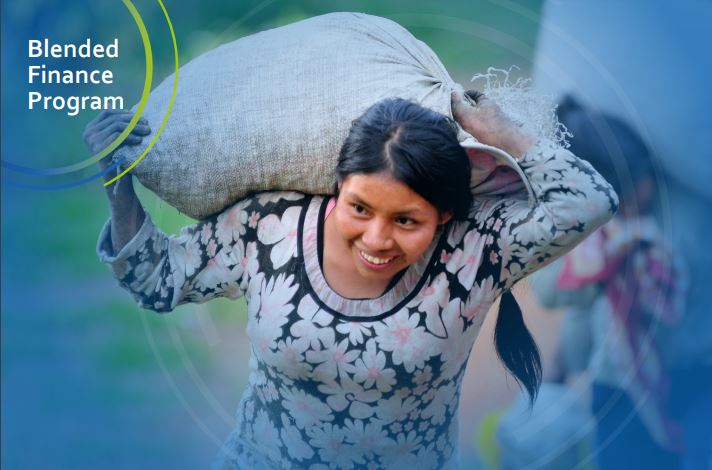 How to use public funds more effectively and mobilize private investment to achieve the Sustainable Development Goals (SDGs) while delivering positive impact? How to use public funds more effectively and mobilize private investment to achieve the Sustainable Development Goals (SDGs) while delivering positive impact?
This three-day learning experience will provide valuable insights on strategies and instruments to “leverage” own resources by blending them with private investment for small and growing businesses in developing and emerging countries. It will also shed light on the whole spectrum of finance for impact and international development. A specific focus will be on catalytic financing tools that are able to attract additional capital for high-impact enterprises. The program is organised by the Initiative for Blended Finance at the University of Zurich, with program partners Roots of Impact, Center for Sustainable Finance and Private Wealth at the University of Zurich, and Convergence.
More information here. Apply before April 30th 2023 to benefit from the early bird discount.
-
09 Oct 2023
Bangkok, Thailand
Show All
|
